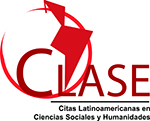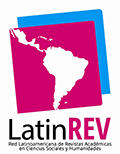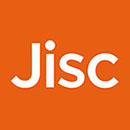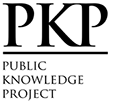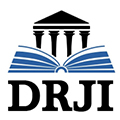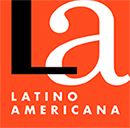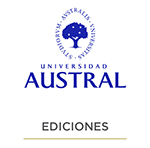To Protect or Not to Protect: The Data Ownership Dilemma
Abstract
This article addresses the debate on data ownership in the context of the digital economy and the increasing importance of data for technological innovation and economic development. The article analyses the dual nature of data: while data as such is not subject to direct property protection, it can be protected indirectly through intellectual property rights or trade secrets. It also examines the emergence of data ownership theories, driven by legal uncertainties and high transaction costs in the digital economy.
The author presents two perspectives: one arguing for the protection of data under a private property regime, arguing that this would encourage investment and secure exclusive rights for data holders, and another advocating more open access to data, favoring reuse and collective technological advancement. As the volume of data grows and its use in technologies such as artificial intelligence expands, this dilemma becomes increasingly relevant. The article highlights the need for balanced legal frameworks that can navigate these competing interests, ensuring both the protection of rights and the promotion of innovation.
Key words: data ownership, digital economy, technological innovation, economic development, data protection, intellectual property rights, trade secrets, data proprietarization, open access to data, data reuse.
Downloads
References
Azéma, J. y Galloux, J. C. (2017). Droit de la propriété industrielle (8ª ed.). Dalloz.
Benabou, L. y Zolynski, C. (2018). Mission du CSPLA sur les conséquences pour la propriété littéraire et artistique de l’avènement des notions de données et de contenus numériques. CSPLA. https://www.culture.gouv.fr/nous-connaitre/organisation-du-ministere/Conseil-superieur-de-la-propriete-litteraire-et-artistique-CSPLA/Travaux-et-publications-du-CSPLA/Missions-du-CSPLA/Mission-du-CSPLA-sur-les-consequences-pour-la-propriete-litteraire-et-artistique-de-l-avenement-des-notions-de-donnees-et-de-contenus-numeriques.
Bensoussan, A. (15 de febrero de 2018). Pour un droit de propriété et une monétisation des données personnelles. Le Figaro. https://www.lefigaro.fr/blogs/bensoussan/2018/02/pour-un-droit-de-propriete-et-une-monetisation-des-donnees-personnelles.html.
Bessen, J., Ford, J. y Meurer, M. J. (2012). The private and social costs of patent trolls. Boston University School of Law Faculty Scholarship, 34(4). https://scholarship.law.bu.edu/faculty_scholarship/241.
Brandimarte, L. y Acquisti, A. (2012). The economics of privacy. En Peitz, M. y Waldfogel, J. (Eds.), The Oxford Handbook of Digital Economy (pp. 547-571). Oxford University Press.
Cadavid, J. A. (2023). The origin and purpose of legal protection for the integrity of copyright metadata. IIC - International Review of Intellectual Property and Competition Law, 54, 1179-1202. https://doi.org/10.1007/s40319-023-01364-1.
Comisión Europea. (2017). Communication on Building a European Data Economy. https://digital-strategy.ec.europa.eu/en/library/communication-building-european-data-economy.
Consejo de Estado de Francia. (2014). Le numérique et les droits fondamentaux. https://www.vie-publique.fr/rapport/34281-etude-annuelle-2014-du-conseil-detat-le-numerique-et-les-droits-fonda.
Contractscounsel.com. (2024). Data Licensing Agreements. https://www.contractscounsel.com/t/us/data-license-agreement#:~:text=Data%20licensing%20agreements%20are%20typically,same%20database%20for%20different%20reasons.
Cotter, T. F., Hovenkamp, E. y Siebrasse, N. (2019). Demystifying patent holdup. Washington and Lee Law Review, 76(4), 1501-1562.
Deltorn, J. M. y Leménager, G. (2020). La protection de l’intelligence artificielle en France et en Europe. Réalités industrielles, 4, 34-38.
Duch-Brown, N., Martens, B. y Mueller-Langer, F. (2017). The economics of ownership, access and trade in digital data. Centro Común de Investigación de la Comisión Europea. https://ec.europa.eu/jrc/en/publication/eur-scientific-and-technical-research-reports/economics-ownership-access-and-trade-digital-data.
Dusollier, S. (2020). Du commun de l’intelligence artificielle. En J. M. Bruguière y Geiger, C. (Eds.), Penser le droit de la pensée. Mélanges en l’honneur de Michel Vivant (p. 113). LexisNexis y Dalloz.
Farchy, J. y Denis, J. (2020). La culture des données. Intelligence artificielle et algorithmes dans les industries culturelles. Presses de Mines.
Fezer, K. H. (2017). Data ownership of the people: An intrinsic intellectual property law sui generis regarding people's behaviour-generated informational data. Zeitschrift für Geistiges Eigentum/Intellectual Property Journal, 9(3), 356-370. https://doi.org/10.1628/186723717X15069451170928.
Godt, C. (2021). Data property: Entitlements between “ownership,” factual control, and access to commons. En A critical mind in the triangle of internal market law, intellectual property and competition law (pp. 449-464). Springer.
Hoeren, T. (2014). Big data and the ownership in data: Recent developments in Europe. European Intellectual Property Review, 12, 751-754.
Hugenholtz, P. B. (2018). Against “data property”. En Ullrich, H., Drahos, P. y Ghidini, G. (Eds.), Kritika: Essays on intellectual property (Vol. 3, pp. 48-71). Edward Elgar.
Information Commissioner’s Office. (2024). Data sharing: A code of practice. https://ico.org.uk/for-organisations/uk-gdpr-guidance-and-resources/data-sharing/data-sharing-a-code-of-practice/data-sharing-agreements/.
Isaac, H. (2018). La donnée une marchandise comme les autres? Enjeux numériques, (2).
Laoutaris, N. (2019). Why online services should pay you for your data? The arguments for a human-centric data economy. IEEE Internet Computing, 23, 29-35. https://doi.org/10.1109/MIC.2019.2953764.
Mariage, V. (1999). Le secret et le droit: Contribution à l’étude de la notion d’information (Tesis de doctorado). Universidad de Versalles Saint-Quentin-en-Yvelines.
Michalsons. (2024). Data as a service (DaaS) business model and legal issues. https://www.michalsons.com/blog/data-as-a-service-daas-business-model-legal-issues/64892.
Moran, B. y Vézina, B. (10 de agosto de 2020). Can machines write like Jane Austen? Creative Commons. https://creativecommons.org/2020/08/10/can-machines-write-like-jane-austen/.
Mylly, U. M. (2024). Trade secrets and the data act. IIC - International Review of Intellectual Property and Competition Law, 55(3), 368-393. https://doi.org/10.1007/s40319-024-01432-0.
Ochoa, N. (2015). Pour en finir avec l’idée d’un droit de propriété sur ses données personnelles: Ce que cache véritablement le principe de libre disposition. Revue Française de Droit Administratif, (6), 1157-1173.
Office québécois de la langue française. (s.f.). Données brutes. https://gdt.oqlf.gouv.qc.ca/ficheOqlf.aspx?Id_Fiche=8874359.
Pomerol, J. C. y Brézillon, P. (2001). About some relationships between knowledge and context. En Akman, V., Bouquet, P., Thomason R. y Young, R. A. (Eds.), Modeling and using context. Third international and interdisciplinary conference, CONTEXT 2001, Dundee, UK, July 27-30, 2001, proceedings (pp. 461-464). Springer.
Purtova, N. (2010). Property in personal data: A European perspective on the instrumentalist theory of propertisation. European Journal of Legal Studies, 2(3).
Radauer, A., Searle, N. y Bader, M. A. (2023). The possibilities and limits of trade secrets to protect data shared between firms in agricultural and food sectors. World Patent Information, 73, 102183. https://doi.org/10.1016/j.wpi.2023.102183.
Real Academia Española. (2024). Diccionario de la lengua española (24ª ed.). https://dle.rae.es
Rouse, M. (s.f.). Digitization. TechTarget. https://www.techtarget.com/whatis/definition/digitization.
Sbodio, M. (2024). CNL4DSA: A controlled natural language for data sharing agreements. ResearchGate. https://www.researchgate.net/profile/Marco-Sbodio/publication/221001628_CNL4DSA_A_controlled_natural_language_for_data_sharing_agreements/links/0912f50a3602c606dd000000/CNL4DSA-A-controlled-natural-language-for-data-sharing-agreements.pdf.
Sobel, B. (2021). A taxonomy of training data: Disentangling the mismatched rights, remedies, and rationales for restricting machine learning. En Lee, J. A. y Hilty, R. M. (Eds.), Artificial intelligence and intellectual property (pp. 221-242). Oxford University Press.
Tré, G. D., Kacprzyk, J., Pasi, G., Zadrożny, S. y Bronselaer, A. (2018). Human centric data management. International Journal of Intelligent Systems, 33, 1-23. https://doi.org/10.1002/int.21918.
Padova, Y. (2019). Entre patrimonialité et injonction au partage : la donnée écartelée? (Partie I). Revue Lamy droit de l'immatériel, (156), 45-51.
Viljoen, S. (2021). A relational theory of data governance. The Yale Law Journal, 131(2), 370-781. https://www.yalelawjournal.org/feature/a-relational-theory-of-data-governance.
Whang, S. E., Roh, Y., Song, H. y Lee, J. G. (2023). Data collection and quality challenges in deep learning: A data-centric AI perspective. The VLDB Journal, 32, 791-813. https://doi.org/10.1007/s00778-022-00775-9.
Zech, H. (2015). Daten als Wirtschaftsgut – Überlegungen zu einem “Recht des Datenerzeugers”. Computer und Recht (CR), 2015b, 137.
Zech, H. (2016). A legal framework for a data economy in the European digital market: Rights to use data. Journal of Intellectual Property Law & Practice, 11(6).
Zolynski, C. (2018). Un nouveau droit de propriété intellectuelle pour valoriser les données: Le miroir aux alouettes? Dalloz IP/IT.
Copyright (c) 2024 Efraín Fandiño López

This work is licensed under a Creative Commons Attribution-NonCommercial-NoDerivatives 4.0 International License.
This license allows the copy, distribution, exhibition and representation of the work provided authorship is acknowledged and the work is properly quoted. Commercial use of the original work or the generation of derived works are not allowed.
The authors hereby guarantee the right to the first publication of the work to the Revista Iberoamericana de la Propiedad Intelectual.










